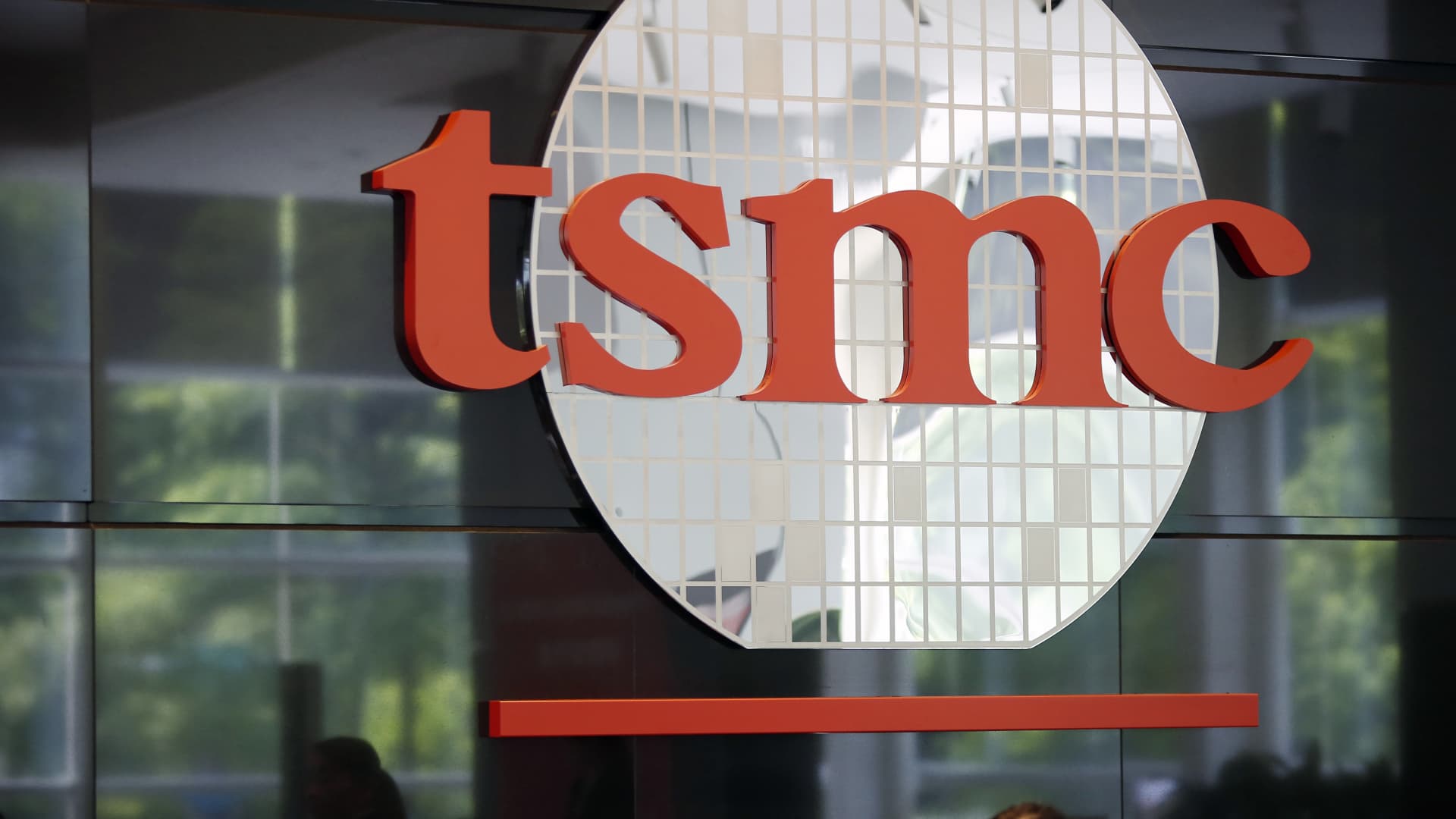Technology
Thursday, July 14th, 2022 7:36 am EDT

TSMC, the world’s biggest chipmaker, posted record net profit in the second quarter, helping assuage fears over weak demand from high inflation and a glut of some semiconductors on the market.
These are some of the key numbers for the three months ended June 30:
- Revenue of 534.14 billion Taiwanese dollars ($18.16 billion), a rise 43.5% year-on-year. That beat the 524.02 billion Taiwan dollar average from analyst estimates compiled by Refinitiv.
- Net income of 237.03 billion Taiwanese dollars, up 76.4% year-on-year and ahead of estimates. That was a record quarter in terms of net income for TSMC.
The company which is Apple‘s most important chip supplier, said it expects revenue to be between $19.8 billion and $20.6 billion in the third quarter, surging from $14.8 billion in the same period last year.
However, TSMC CEO CC Wei said that some of the company’s capital expenditure would be “pushed out into 2023.” He cited “greater challenges in the supply chains” which is extending delivery times for some chipmaking equipment.
The strong results and outlook but caution on spending highlights the careful path chipmakers are walking at a time of concern about rising prices and the impact on consumer demand, as well as a high supply of chips.
Chip stocks have been hammered this year amid a myriad of worries, including supply chain disruptions, the Russia-Ukraine war and rising materials costs. Last month, U.S. chipmaker Micron warned of softening demand for consumer products.
But on the whole, TSMC’s results has allayed some of the worries in the chip market and particularly around the company itself.
“I would say that TSMC is a class of its own, with a well-built moat,” Sze Ho Ng, analyst at China Renaissance, told CNBC.
He said that TSMC’s guidance suggested that it will “continue to grow even in a scenario of the overall chip market being down” year-on-year.
TSMC makes chips for other companies and has some of the most advanced manufacturing processes in the world. The company said it saw weakness in the consumer market such as smartphones and PCs but its data center and automotive business remained “steady.”
Meanwhile, investors have been worried about a potential chip glut in the market. Right now, inventory levels are quite high suggesting weak demand which could put pressure on semiconductor prices.
But TSMC’s Wei said he sees inventory levels reducing and said the current adjustments being made resemble a “typical cycle” for semiconductors.
“We believe the current semiconductor cycle will be more similar to a typical cycle, with a few quarters of inventory adjustment likely through the first half 2023,” Wei said.
This post has been syndicated from a third-party source. View the original article here.




